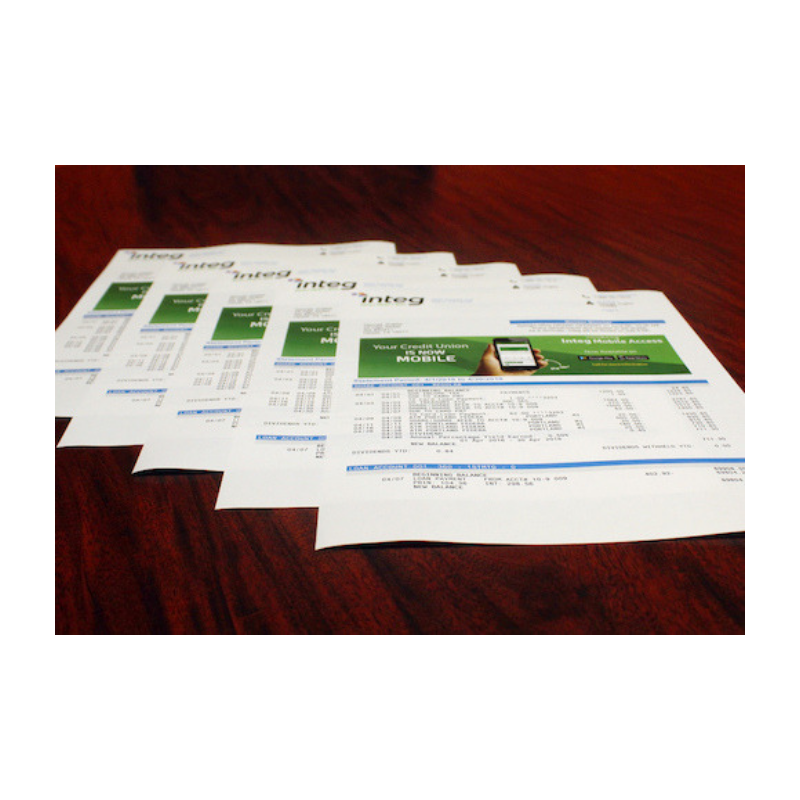What is transactional printing? How does it differ from variable printing? What industries would be most likely to utilize either? In the printing world, terms such as these are loosely defined and used interchangeably. We’d like to help clear the air in regards to transactional and variable printing, what makes them different from each other, and what industries could benefit from utilizing either.
Variable Printing Defined

Variable printing is a generic term. It involves personalizing mass-printed documents with specific information. Text, graphics, or images can vary from one printed piece to the next without stopping the printing process. This allows a client to target specific and varying audiences more directly. In addition, this is the same technology used to print individual names, addresses, and greetings on direct mail pieces.
In summary, any form of data that varies while the main content remains the same is classified as variable printing.
Transactional Printing Defined
Under the umbrella of variable printing is transactional printing. Transactional printing allows for the inclusion of personal data in a document to the extreme. While variable printing allows for the inclusion of a limited amount of personalized data, transactional printing allows for the inclusion of an extreme amount of personalized data.
For example, transactional printing allows for non-stop printing while including transactional information, such as a list of charges in a bank statement, while maintaining a uniform template. It’s extreme personalization! It is most often used for documents such as:
- Invoices
- Bills
- Statements
- Retirement portfolios
Transactional formatting can be used for direct mail pieces, e-documents, or multi-channel pieces in order to keep clients as informed as possible.
Industries that Utilize Transactional Printing
While a variety of industries can utilize transactional formatting, the most frequently partnered with industries are:
Secure Transactional Printing
With the nature of including clients personal information, security is of the utmost importance to both the clients and to the processing companies. Some certifications that companies should look out for when choosing who to outsource for their transactional printing needs are:
- HIPAA Compliance
- The Health Insurance Portability and Accountability Act ensures in multiple facets that companies who handle sensitive data related to the healthcare industry do so in a secure and appropriate fashion.
- SSAE 16 Type II
- By complying with the guidelines of SSAE 16 Type II certification, a company holds itself to a higher standard in regards to data security.


 secure source for statement printing
secure source for statement printing



